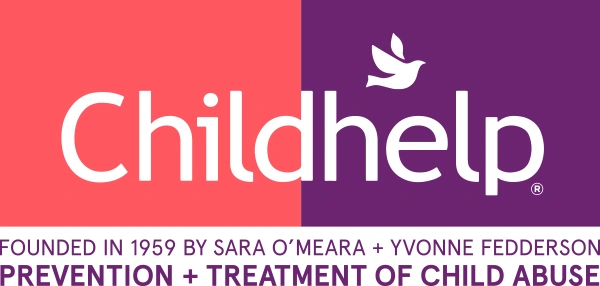Information on Child Abuse
Following is a list of Web sites containing useful information on child abuse as well as effective parenting. Many of the organizations who sponsor the sites use offer additional resources such as consultation, training, research, advocacy, or dissemination of information on child abuse.
CASEL
The Collaborative for Academic, Social, and Emotional Learning is helping make evidence-based social and emotional learning an integral part of education from preschool through high school.
CDC
Guiding Principles To A Trauma-Informed Approach
Center for Effective Parenting
Provides helpful parenting information.
Child Care Aware
Committed to helping parents find the best information on locating quality child care and child care resources in their community.
Child Trends Data Bank
Source for the latest national trends and research on over 100 key indicators of child and youth well-being.
Child Welfare League of America
Child Welfare League of America National Data Analysis System CWLA, in cooperation with the nation’s state child welfare agencies, provides a comprehensive, interactive child welfare database. Internet users can create customized tables and graphs, as well as access to information on child abuse.
Child Welfare Information Gateway
Child Welfare Information Gateway connects professionals and concerned citizens to timely, essential information and resources targeted to the safety, permanency, and well-being of children and families.
Children’s Action Alliance
Helps promote the well-being of children and their families through research, policy development, media campaigns and advocacy.
Children’s Defense Fund
Mission is to ensure every child a Healthy Start, a Head Start, a Fair Start, a Safe Start, and a Moral Start in life.
Children Now
Information on child abuse and on making children the top public policy priority.
Circle of Parents
Network of parent-led self-help groups where parents and caregivers can share ideas, celebrate successes, and address the challenges surrounding parenting.
Common Sense Education
Help kids practice smart internet habits and stay safe online.
Common Sense Education
Support your students’ social and emotional learning as they navigate the digital world.
DOVES Network
DOVES Network’s overarching goal is to reduce traumatic stress symptoms while overall improving the functioning and development of adolescents that’s been exposed to the trauma impact of domestic and sexual violence.
edWeb
Award-winning professional learning network founded in 2008, where education professionals can collaborate, engage in peer-to-peer learning, and share innovative ideas and resources, with webinars for learning with CE certificates for PD hours.
Focus Adolescent Services
Resources on Teen and Family Issues. Topics include anger and violence; self injury such as carving, branding and marking; and abuse.
G.W. Medical Publishing
G.W. Medical Publishing is a leading clinical and forensic publisher serving the medical, legal, social service, and law enforcement communities with the resources they need to combat child abuse, sexual assault, sexual exploitation, domestic violence, child trafficking, and other maltreatment.
Kids Count Data Book
Project by the Annie E. Casey Foundation to track status of children in the United States.
Listenwise
A partner of NPR, provides a wide variety of educational podcasts to support social-emotional learning (SEL), build listening comprehension, and start conversations about challenging topics.
MedlinePlus
A service of the U.S. National Library of Medicine and the National Institutes of Health.
National Center for Missing & Exploited Children
NCMEC leads the fight against abduction, abuse, and exploitation – because every child deserves a safe childhood.
Neolth
Helps kids build resilience with personalized relaxation and SEL practices, increase emotional awareness with health tracking, learn about mental health with expert advice videos, reduce stigma with student stories video series, develop a sense of belonging with livestream community events, and feel safe with real-time referral to trusted text and hotlines.
Parents Anonymous
The nation’s oldest for information on child abuse prevention.
Prevent Child Abuse America
Dedicated to providing information on child abuse and inspiring hope to everyone involved in the effort to prevent the abuse and neglect of children.
Respect in Sport
Respect in Sport is an online bullying, abuse, harassment and neglect prevention program for coaches and community leaders.
Stand for Children
Advocate for improvements to and funding for programs that give every child a fair chance in life.
TeensHealth
Created by The Nemours Foundation’s Center for Children’s Health Media, TeensHealth provides teens and families with up-to-date, jargon-free advice about health, relationships, and growing up. Topics include issues such as depression and self-cutting, abuse in the family, and safety basics such as internet safety.
Text-Talk-Act
Text, Talk, Act uses text messaging, paired with small group discussions, to quickly get youth talking and connected to resources. Our activity is highly engaging for today’s youth and includes live polling, videos, and social media interactions.
U.S. Department of Health and Human Services, Children’s Bureau
Government site featuring information on child abuse, statistics, and resources related to child welfare.
Zero to Three
Publications, reference guides to programs, projects and professional developmental services promoting the healthy development of our nation’s infants and toddlers.
For more information on child abuse, visit the Childhelp Info Center.
Information about Adverse Childhood Experiences (ACEs)
Dr. Nadine Burke Harris – TEDTalk
Pediatrician Nadine Burke Harris explains that the repeated stress of abuse, neglect and parents struggling with mental health or substance abuse issues has real, tangible effects on the development of the brain.
Number Story
ACEs are Adverse Childhood Experiences. Our ACE history counts experiences of abuse, neglect and household challenges that happened to us as children. But that number does not define us. It is simply an entry point to our own personal story.
